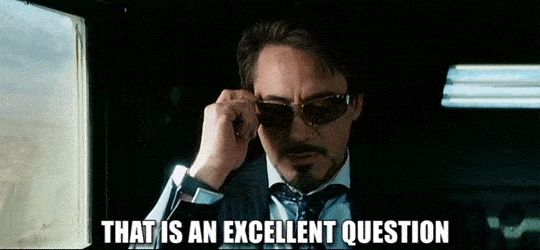.webp?width=1200&name=Capture-d%E2%80%99e%CC%81cran-2018-06-19-a%CC%80-16.48.10%20(1).webp)
What is Big Data?
Big Data refers to the fact that the amount of data available for study and analysis has become so large, it goes beyond the ability of humans, as well as traditional database and information management tools, to analyze it. In the era of Big Data, anyone can access large-scale databases in real time. One notable benefit of this is that companies can access key data regarding their clientele.
Here’s one example : At the Guggenheim Museum, electronic transmitters in the museum’s rooms track visitors throughout their visit. By analyzing this large-scale data set, the museum can make strategic decisions on topics such as which exhibits to show and new programming to develop for visitors .based on the most popular works
The challenge of Big Data for companies
The presence of Big Data indicates a need for a change in company culture – businesses must learn to set goals in the context of a continuous analysis of the data available to them. Small organizations can implement such changes easily, but it can prove to be a challenge for larger companies.
There are several different reasons that Big Data has made data processing more complex :
Having reliable KPIs and other indicators can be difficult. It’s essential to constantly process and update the data to ensure it is pertinent, actionable, and offers insight on various specific points. .Companies may not have specialized personnel or tools to accomplish this.
In addition, once the data has been collected and organized, the next step is to use it to share an idea with the rest of the company in a simple and effective way. Many company teams are structured as “silos”, so this kind of data-sharing suggests transversality that is not compatible with this type of organizational structure. This is why it is essential for companies to make significant changes.
Developers of business solutions are influenced by the many apps on the market that are designed for personal use. These days, apps designed for individuals are far more up-to-date, and address specific needs effectively. How can this be replicated in business apps?
The “one need, one app” philosophy
With the popularity of smartphones, the public has become familiar with how apps work, and individuals are used to using a wide range of specialized applications.
Unlike business applications, apps meant for personal use are very frequently updated and undergo rapid evolutions. A resulting technology gap has developed between the personal and professional worlds, though the hardware used is often the same (laptops, smartphones, and tablets).
For example, there are already 21 versions of Android, though the first was released less than seven years ago. iOS also offers regular updates, repairing any issues that have been brought to their attention, such as updates that address issues related to devices’ battery life. This is not yet always the case with business software.
Apps for personal use influence business solutions
The “one need, one app” concept has also caught the attention of companies looking to address a specific need. Trends in business software lean towards powerful applications that have been developed to address various different business needs and large quantities of data.
The main drawback of this type of app is that it can be challenging to implement new iterations and make changes from one version to the next. This means that they cannot always adapt to the constantly-changing needs that professionals have. When a solution is released, there may even be a certain lag between the original need and the response to that need.
In companies, there is a real demand for apps that address specific needs. Professionals are looking for software that has been developed for a specific, day-to-day task. This type of small- scale development has various different effects. It reduces the training time for users, but developers need to spend more time on maintenance.
The “one need, one app” philosophy is increasing in popularity, with more and more initiatives being launched within companies, either within the Information Services Directorate or in collaboration with external service providers, web professionals, who are used to very short and agile production cycles (such as the Scrum method).
Within companies, Information Services Directors appear to be key drivers and participants in changes that are made in the context of Big Data.
The role of Information Services Directors
Information Services Directors play a fundamental role in changes made within a company in response to Big Data.
They have in-depth knowledge of different types of software that are likely to meet the company’s needs.
These professionals are also skilled in data security, management, and architecture. This is extremely valuable, especially when a project is outsourced to external service providers, who are used to fast-paced development for the general public.
The Information Services Director, external service providers, and other professionals who have complementary skillsets can work together to ensure the quality and ease of use of the final product. Moreover, regular communication and productive collaboration between the Information Services Director and users makes for effective updates and improvements.
The development of these “small-scale” digital solutions allows for more productive exchange between tech teams and users. These more effective collaborations ensure that the tools developed for professionals are of higher quality, are easier to use because they are specialized and targeted to specific needs, and can be updated as these needs change.
With digitalization, companies have made significant investments in hardware, equipping many of their teams with smartphones and tablets. These tools have not yet been used to their fullest potential. In order to make the most of these investments, professionals need simple and .accessible apps that they can use in their day-to-day work.
Big Data marks a significant moment in business and represents a series of changes that large companies must make, as well as the needs that are present among different professionals in the company. Toucan focuses on the “last mile” of your data in order to meet this need: having easy- to-use and accessible apps that increase the visibility and interactivity of your company’s goals and data. We aim to share your vision by letting data speak – that’s data storytelling.
Want to find out more? Discover Credit Agricole’s experience. They chose Toucan Toco to deal with their digital transformation.
Charles Miglietti, co-founder @Toucan Toco
ABOUT TOUCAN TOCO
Toucan Toco’s mission is to transform complex raw data into informative and illustrative Dataviz and interactive stories.
Our users include Marketing, Production, Financial, Human Resources and Sales professionals .working in large companies
From 4 team members to 35 collaborators in 3 years, our clients include over 80 key accounts for .a total of 150 projects, including EDF, Total, Renault, JCDecaux, Marques Avenue and BPCE.
Toucan’s Small Apps are mobile, easy to use and implement, can be integrated into existing information systems and are created for operational excellence in the fields of HR, Marketing, Financial, Sales and Management.





